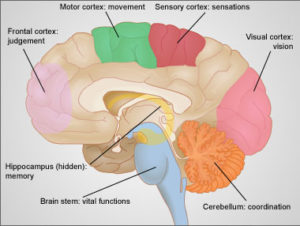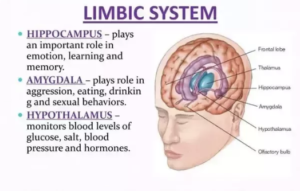Trauma Healing Through Jesus Christ
Many Christians have telling symptoms of unhealed trauma and don’t even realize it. Let’s look at some common signs of unhealed trauma so we can identify what might be hiding under the radar in you, your spouse, your coworkers, or your children. Once you discover signs of hidden trauma, the next step is to begin trauma healing through Jesus Christ. Thankfully, God has already provided ALL trauma healing through Jesus Christ.
So let’s take the first step. Please take a look at the symptoms of trauma listed below. Do you have any of these symptoms?
12 Signs of Unhealed Trauma that Adults and Children Can Feel Inwardly
These signs are pretty hidden. These are secret experiences a person goes through. An anxious or nervous person will not speak about it unless they have to.

- Racing heart, palpitations, breathing problems
- Anxiety, including chronic low level anxiety
- Being on ‘red alert’, or hyper-vigilant
- Panic attacks
- Nervousness, fidgeting, holding oneself or one’s own hands
- Can’t sit still
- Overwhelming fears or seemingly irrational fears such as something falling from above
- Flashbacks and intrusive memories or images
- Unexpected or explosive emotional responses but normally calm, kind persona
- Extreme sensitivity to light, sound, smell, suggestion, language, images or touch
- Insomnia, nightmares, night terrors, vivid dreams that seem real, dreaming while awake
- Physical, mental or emotional exhaustion (seems inescapable)
The next 4 signs are a little bit more visible and may indicate repeat or sustained trauma.
- Mental ‘blankness’ or spaced-out feelings, whole body tingling, constant self observation, derealization
- Unexplained bouts of grief, sadness or rage – hiding away or acting out
- Don’t want to be touched, pulls back at offers of affection, clings to parent’s leg (child), extremely shy
- Longer than normal thumb sucking – into later childhood and sometimes adulthood
In cases of early childhood trauma and traumatic stress, the self-regulation capacity of our autonomic nervous system and physiology is disturbed, preventing us from regaining a ‘relaxed normal’ state. Otherwise benign events or triggers may exhaust our nervous system whose distorted ‘normal’ settings are hypersensitive, unresponsive or erratic. Over time, after months or even several decades, this can result in unwanted life circumstances such as the following:
Adult Life Patterns Indicating More Severe or Sustained Childhood Trauma:
- Attraction to or attracting dangerous situations or people
- Frequent illness or accidents
- Estrangement from family, sibling issues, bitterness, unforgiveness
- Anger towards opposite sex, anger towards self
- Denial of the past, denial of pain, inability to cry, dissociation from emotions
- Addictive behaviors, eating disorders, isolation, introversion, existential depression
- Avoidance behavior, avoiding foods, places, activities, memories, situations or people
- An exaggerated sense of responsibility for the underdog
- Giving more than receiving, personal gains always followed by losses, over-functioning, overworking, under-rewarded
- Unwanted supernatural or spirit presences, inexplicably sensitive, large antennas for sensing danger
- Excessive introspection, thinking, contemplating, worrying, working to figure things out, survival strategies
Physical or Medical Symptoms Correlating With Histories of Trauma
- Bothersome or worrisome health issues that don’t show up as positives in lab tests (no medical validation)
- Neck, spine and back problems
- Muscle weakness, muscle pain
- Digestive problems, e.g. IBS
- Immune system problems
- Skin disorders
- Myofacsial pain syndrome
- Environmental sensitivities
- Chronic Fatigue Syndrome
- Fibromyalgia
- Neuralgia
Potential Effects on the Brain for Children Who Experienced Sustained Trauma
 A decrease in the size of the hippocampus, which is important in learning and memory
A decrease in the size of the hippocampus, which is important in learning and memory- A decrease in the size of the corpus callosum, which functions for emotion, impulses, and arousal, as well as communicating between the right and left brain hemispheres
- A decrease in the size of the cerebellum, which can affect motor skills and coordination
- A decrease in the volume of the prefrontal cortex, which affects behavior, balancing emotions and perception
- Too much activity in the amygdala, which is responsible for processing emotions and determining reactions to potentially stressful or dangerous situations
- Cortisol level becomes unregulated, leading to high anxiety from stress or depression
Core Beliefs of Survivors of Severe Trauma:
• I don’t believe there are really good options or good people out there
• It’s just easier being alone
• I don’t seem to be able to love, nurture, or bond with healthy people in healthy ways
• I wonder if I really deserve love and tenderness, and I wonder what it would be like to experience it
• I think I am codependent because I get trauma bonded to bad people
• I find it difficult to receive love or nurturing
• I find it difficult to commit to people and plans
• I feel constantly overwhelmed
• I don’t seem to be able to make decisions
• I can’t think clearly
• It all seems too much
• When I try to explain myself, people don’t get it
• I can’t risk going there again (love, relationships, close bonds)
• I’m losing sight of where I’m going
• I don’t have any energy
• I feel stuck or caught is a repeat cycle of circumstances
• I keep getting stuck in emotional loops
Symptoms of a Sustained Dissociative State
(from a Severe Trauma History)
- Dissociation (constantly glazed eyes, trouble focusing, being present)
- Depersonalization (feeling disconnected from one’s own thoughts, feelings, and body)
- Derealization (feeling that the surrounding environment is foreign, odd, or unreal)
- Depression and/or mood swings
- Altered personality, changes in handwriting, speaking of self as “we”
- Substance abuse or fear of medication or both
- Memory loss or lost time
- Blackouts
- Flashbacks of unremembered traumatic events or feelings (abreaction) – usually later in life
- Hearing or seeing vivid spiritual visions or the paranormal (coupled with the above listings)
Trauma Healing Through Jesus Christ
Adults who are able to identify suppressed or forgotten trauma can get better help. There are great rewards to realizing one’s own trauma symptoms. Things finally start to make sense. Every believer can heal fully through a relationship with Jesus Christ, with bible based healing, and experience renewed life and rich human relationships once again.
For Strategic Trauma Healing Please See Our Menu for Free Downloadable Prayer, Healing and Deliverance
PLEASE SHARE THIS ARTICLE ON SOCIAL MEDIA

